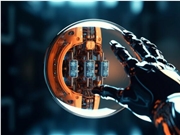The Beijing Internet Court recently heard a landmark case, the first nationwide involving the infringement of the right to personality of AI-generated voices. With the rapid development of artificial intelligence technology, AI-generated voices, images, and videos have become widespread, leading to an increasing number of legal issues.
The plaintiff, Ms. Yin, is a professional voice actor. She discovered that many videos online were using her voice for dubbing, facilitated by an AI voice product from a workshop. The product could convert user-input text into corresponding voices, one of which was Ms. Yin's. Ms. Yin had recorded two audiobooks, which were provided to a software company by a cultural media firm. The software company then processed these recordings into an AI-generated text-to-speech product, which was sold by distributors. Eventually, the tech company that owned the workshop purchased this product and sold it without further technical processing.
Ms. Yin believed her voice rights were infringed and sued five companies, demanding they cease infringement, apologize, and compensate for 600,000 yuan in economic losses. The Beijing Internet Court ruled that AI-generated voices are identifiable and should be legally protected. The cultural media company, without Ms. Yin's authorization, processed her voice with AI and used it, constituting an infringement. The tech company operating the workshop product was only responsible for ceasing the infringement.
The court ultimately ordered the cultural media and tech companies to compensate Ms. Yin with a total of 250,000 yuan. This case not only showcases the court's wisdom and capability in handling legal issues arising from new AI technologies but also reminds the public and businesses to comply with the law and respect others' personality rights when using AI technology.

Additionally, the Beijing Internet Court heard a case involving an AI companion. The plaintiff, Mr. He, a public figure, found himself being set up as a virtual companion by many users. This budgeting software allows users to create and add AI companions and interact with them. Mr. He believed the software infringed his rights and sued the development company.
The defendant company argued that Mr. He's images, emojis, and personalized reply texts were uploaded and set by users, and they were merely service providers. However, the court found that the defendant company was not just providing technical services; its product design and algorithm application determined the core functionality of the software, thus should bear the infringement liability.
Ultimately, the Beijing Internet Court ordered the defendant company to publicly apologize to Mr. He and compensate for economic losses of 183,000 yuan and mental damages of 20,000 yuan. This case reiterates the importance of respecting others' personality rights, especially public figures' images, in the use of online virtual personas, and unauthorized use may constitute an infringement.
These two cases not only advance the process of internet law but also present new legal challenges and considerations for the application of AI technology, reminding us to fully protect everyone's legitimate rights while enjoying the convenience brought by technology.










